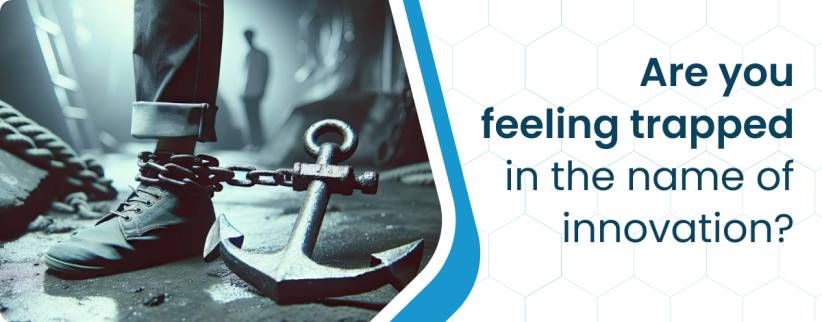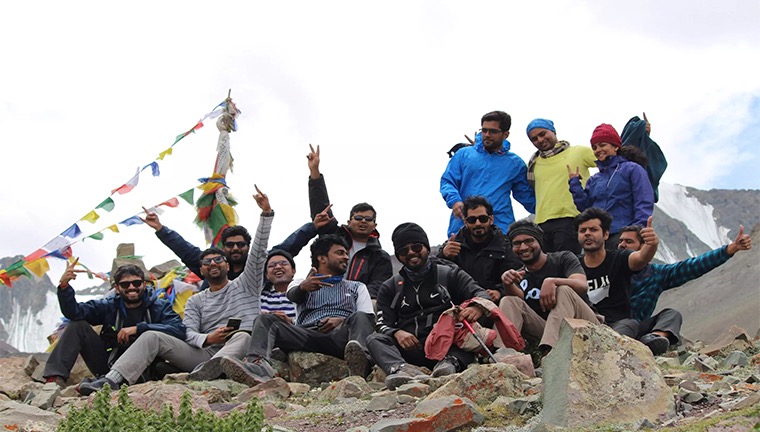Table of Contents
ToggleMy co-founders and I – the 3 of us went tripping after a long time (5 years to be precise) together. Well, that can be interpreted as a good indicator for FieldAssist since three of us could leave the office at the same time!
Our trip – The Stok Kangri trek, some may call it a moderate expedition, I say, it was anything but moderate! It was a Tough Trek. It’s the highest non-technical trek that amateurs could do.
I’ve been into trekking for the last few years while my other friends were doing their first major trek as Stok and did pretty well. Hence, few things during the 10-day trek since we reached 3 days prior to the start date, helped us not just for the trek, but in other ways too:
1. Acclimatization/ Groundwork:
Though it is advised to reach at least 2 days prior to the trek, we reached 5 days in advance as we wanted to visit Turtuk – a beautiful Baltistani cultured village in the North-Eastern most frontier. These 3 additional days of acclimatization did wonders. Since, we reached in advance, we could finish a small hike in TurTuk, were better equipped and had fewer issues during the trek despite the fact that there were seasoned trekkers than my co-founder friends.
Thus, before launching a new product/service, the ground work is essential. In trekking parlance, larger the ground that you cover, the better you acclimatize and therefore you’re all set for greater good!
2.Visualization/Vision:
Owing to multiple reasons, we couldn’t complete the trek. We were heartbroken but I think none of us could visualize the summit well. The climb to the summit is 1000 m elevation gain in one single stretch. Our assent briefing was poor, and people in our group were devastated when they learnt about the gaps in the journey. They were equally appalled at the setbacks since none of them saw it coming.
Setting up a vision for any organisation is key, otherwise just like we started losing hope, tenacity and perseverance, could happen anytime. Make sure you’ve the road map ready.
3. Experience :
During this expedition, we saw change of leadership where our trek leader and local leaders were replaced last moment owing to unavoidable reasons. Our new leader fumbled throughout the trip since he was anchoring the responsibility for the first time. Since experience matters, I’m certain he will do a better job next time. On the contrary, since it was my third time in Ladakh, I and my friends, made a good preparation for the trek. We were trekking light, learnt a lot better about the weather, equipment, preparation etc.
Overall it helped us immensely. Hence, if you think you need to scale your business or if it’s time for you to seek external help or hire an expert(s) to do take your business to newer heights, go ahead, do it, don’t wait! Experience counts and comes at a cost, as they say either you learn by your own mistakes or you can learn from others. In my view, the latter is a friendly deal!
4. The score takes care of itself:
If I were asked to score the trek on a scale of 1 to 10, I’ll rate it 10. Why? We couldn’t even complete it. The point here is that we chased the goal – to climb the summit as a team. It was not me or an individual climbing alone, so we settled up the target as a team. We had a leader, we had star performers we had average trekkers and we had people who could improve. But we did our best, followed instructions. We climbed as a team, supporting each other throughout and most of all enjoyed the company and journey all along.
We had to come back as a team on 5700 m as one of our team members couldn’t continue. We were left with no choice. At that moment, it was about US and not I as an individual. WE were happy because we performed. For us, the summit was at 5700 m and we scaled it!
In business also, it is very important not to be over obsessed by the target, rather invest in the process. A good iterative process with feedback and improvisation will help the score take care of itself. The team is what matters, as people make any business good to great.
5. Unforeseen circumstances:
We were good after 3 days into the trek, reached the base camp, did our acclimatization trek before the assent as well. But what followed was beyond our control limits and truly unforeseen – the weather. The day before the summit it rained heavily, For a moment, I felt I was not in Ladakh but back in Mumbai. It rained for 8 hours, but our support staff did not give up. They did best to their efforts, created temporary drainage to avoid water coming into our tents, served the food in our tents and worked through the night relentlessly.
Result – We didn’t lose hope, the weather opened up and trust me during and after the assent it was the best two days of the month for the climb.
So, once you drive a business or in life, one will face such bad times. These are unforeseen challenges but the trick is to keep holding the fort and do what you are doing. There’s always a dawn after a long night.
6. Leaders eat last/Don’t lose focus:
Another important one. While we were doing one of our acclimatization hike at the base camp, the brief from our trek leader suggested it was a 2 hour hike. Thus, it was important to carry a day pack with a liter of water. This hike was followed by a 3 hour hike that we completed in that day while returning to the base camp. It did not began well, few people had to stop as we were finding it difficult to cross a stream.
We got slightly delayed. But what happened later in that hike was avoidable- few enthusiasts were hiking fast and since our leader was also an equal enthusiast, he kept moving forward with the group leaving the others behind. The message it conveyed to others was – firstly, all of us have to climb 4 hours and not 2 hours, as we thought it was necessary for the trek. That turned out to be a Blessing in disguise.
Secondly, as we derailed from what we discussed, people at the back who were moving slow, were left without enough of water and supplements, plus the leader was not around to guide. They felt dejected seeing others moving ahead and they started to struggle The climate turned from bad to worse, hailstorms making it impossible to complete the trek. People felt dizzy.
Overall, the majority of our group got frustrated and what started off as a team appeared to fall apart. To add to it, our leader instead of addressing the problem and apologizing looked for lame excuses as a cover.
So, what next? Well, people lost their trust. This is very important, especially if you are a leader, you cannot leave your troop behind.
Recreate your story with #FAFolklore
Leaders are the ones who not only talk the path but walk the path too. Yes, to err is human, but to accept the mistake, make an apology and move forward is a leader. Losing focus is easy, but to consistently keep a watch and stay vigilant about deviation help companies scale greater heights. A leader can take years to gain trust but an instant to lose it all.
Written by Divir Tiwari, our co-founder who recently completed one of the most adventurous and fascinating trek – The Stok Kangri trek
About Post Author
Divir Tiwari
A technology enthusiast at heart, Divir loves a good challenge. What he enjoys, even more, is finding out if it can possibly be solved with technology. He is the heart of the Sales Team at FieldAssist and is a business development magician. Divir is a firm believer in collective organisational growth, product-based solutions and adding value to customers’ business.




